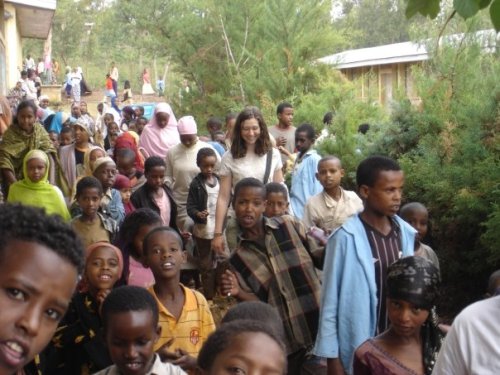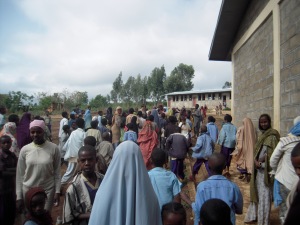
From early July…
My students are amazing. When I get to school they are lined up outside my classroom door waiting anxiously. There is pushing to get in but the older students help me read the names of the kids in my class and ensure that the right students are getting in. Every day there are new students, some even who’ve heard about us and travelled from other villages. My students know I always let in as many new students as will fit in the classroom. They shove in four to a two-person desk and make the best of the broken ones to allow as many students in as possible. As I prepare the chalkboard they sit silently, and when I begin class they stand to greet me. Outside kids throw rocks at the broken windows and yell into the classroom. My students’ attention is not broken. Other kids bang on the classroom door, eventually pushing hard enough to move the rock I have used as a barricade and tumbling inside. Unfazed, a few students calmly rise and shove them back outside, sliding the rock back in place. It seems these are the learning conditions they are used to.
Each day that I teach is better than the previous. A comfort settled in between my students and me that allows me to joke and make faces, to discipline and chastise, to congratulate and hug. Whereas on the first day of school I felt nailed to a spot on the floor, hands glued to my chalk and eraser, I am now confident imitating the verb “to skip” across the room, having conversations with myself as two characters, and shouting “THURRRRR” over the rows of students, lips pushed open wide to show how to pronounce Thursday and nose scrunched up for effect. The students have also loosened up. They are learning how to respond to open-ended questions without answers to choose from, to use their imagination, to answer a question wrong just for the sake of trying, to take risks and laugh at their mistakes.
At the end of every class I stand by the door to shake hands with every student as they leave. About a week in the students adopted the more affectionate greeting that’s more like a hug. Today as Biftu approached me she looked extra smiley and bashful. When I grabbed her hand she suddenly lunged in, touching her small lips to my cheek, and hurried away into the protective circle of her giggling friends. Then it was all cheek kisses for everyone.


 From June 22…
From June 22…













